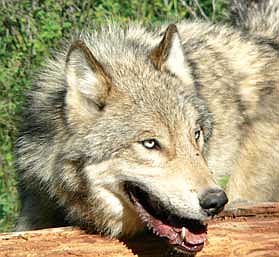Wolves delisted but challenges lie ahead
The recent federal decision to delist the northern Rockies gray wolf from the Endangered Species Act and turn management over to the state has many affiliated organizations feeling déjà vu.
In February 2008, the U.S. Fish and Wildlife Service made the same maneuver and delisted the wolf. Later, on July 18, U.S. district judge Donald Malloy granted an injunction to 11 conservation groups and restored the wolf’s ESA designation.
By October 2008, the FWS asked the court to withdraw the ruling, which was granted and the delisting was officially announced last Wednesday.
The FWS decision has rallied support from groups like the Montana Stockgrowers Association, while others like the Defenders of Wildlife say concerns raised in the July 2008 injunction have not been addressed.
“Livestock producers can’t afford this flip-flopping on the status of wolves in Montana,” said Tom Hougen, Montana Stockgrowers president. “We hope the FWS is better prepared to defend its decision this time around, as it most likely will go to court.”
Suzanne Stone, DOW northern Rockies representative, said, “It is logical we may see the same outcome.”
She said the DOW is waiting to see the final rule and how the Federal Register, which FWS is said to file Jan. 27, plays out.
Stone said FWS passed basically the same ruling and went against agency policy when they delisted by state and not region, excluding Wyoming.
“This tug-of-war has not been constructive for anyone involved,” Stone said. “We need a regional, science-based recovery plan that addresses management concerns and move on.”
One model receiving federal praise is the 2004 Montana Wolf Plan.
Montana Fish, Wildlife and Parks was one of the stakeholders which helped draft this plan and FWS deputy secretary Lynn Scarlett said Montana has “great on-the-ground management.”
“State wildlife agencies have the expertise and presence on the ground to manage wolves according to the best scientific principles,” Scarlett said.
Kent Laudon, FWP wolf management specialist, represents that presence on the ground. He has been tracking, trapping and collaring Montana wolves for the past five years.
“Wolves are recovered,” Laudon said. “They are becoming just like any other wildlife. We have got a pretty good handle on their population, especially compared to say, lions.”
He strongly emphasized that current wolf counts are a minimum number.
He has a high degree of confidence in his 2007 wolf estimates, but said it got tougher in 2008 because much of his time was spent administering four Argos GPS collars to more remote packs.
“It took more of our time to track these versus more well-known areas,” Laudon said.
His main concern is that the delisting literally comes at a cost. FWS said there is close to $800,000 left for Laudon’s agency.
“The big change is the money uncertainty. My budget has decreased to conservatively prepare for the unknown,” Laudon said.
He expects to lose his crew of three and “this is going to leave wolf monitoring hurting in the future.”
Accurate monitoring costs money, and Laudon estimates a minimum of 400 wolves live on the Montana landscape with roughly one dozen packs in Lincoln County.
“There is a sea of misinformation out there. Perceptions rule the day,” Laudon said. “I have found that if we can talk to reasonable people one-on-one, it usually works out.”
Laudon said wolves are expanding their range and he anticipates that livestock depredations will go up in 2009.
“There are more wolves in livestock areas than before, and this increases the likelihood of loss,” he said. “They don’t always kill livestock, though sometimes it can become chronic.”
State livestock loss mitigation coordinator George Edwards’ empty coffers show the hit ranchers took in 2008. The $83,000 fund – $53,000 donated by conservation groups and $30,000 from taxpayers through the state general budget – is gone.
“We are totally broke,” Edwards said. “We spent the full amount by December and have a small waiting list of unpaid claims.”
Edwards said the DOW would honor its final donation of $50,000 to the 2009 loss fund, and Stone said once the paperwork is received the payment will be expedited.
Edwards’s loss mitigation agency may soon receive a federal bailout. The Wolf Livestock Loss Mitigation Act was included in a major public lands bill, which recently passed the U.S. Senate, 73-21.
The act’s sponsors, Sen. Jon Tester (D-Mont.) and Sen. John Barrasso (R-Wyo.) said federal grants would be made available to livestock producers who suffered wolf predation.
“The good news is that Sen. Tester’s bill would provide federal cost share of any activity,” Edwards said. “That $50,000 is going to go twice as far. That’s huge.”
Scarlett said, “No one wants to see livestock lost … at the same time millions of Americans value the presence of this iconic animal in our wilderness.”

